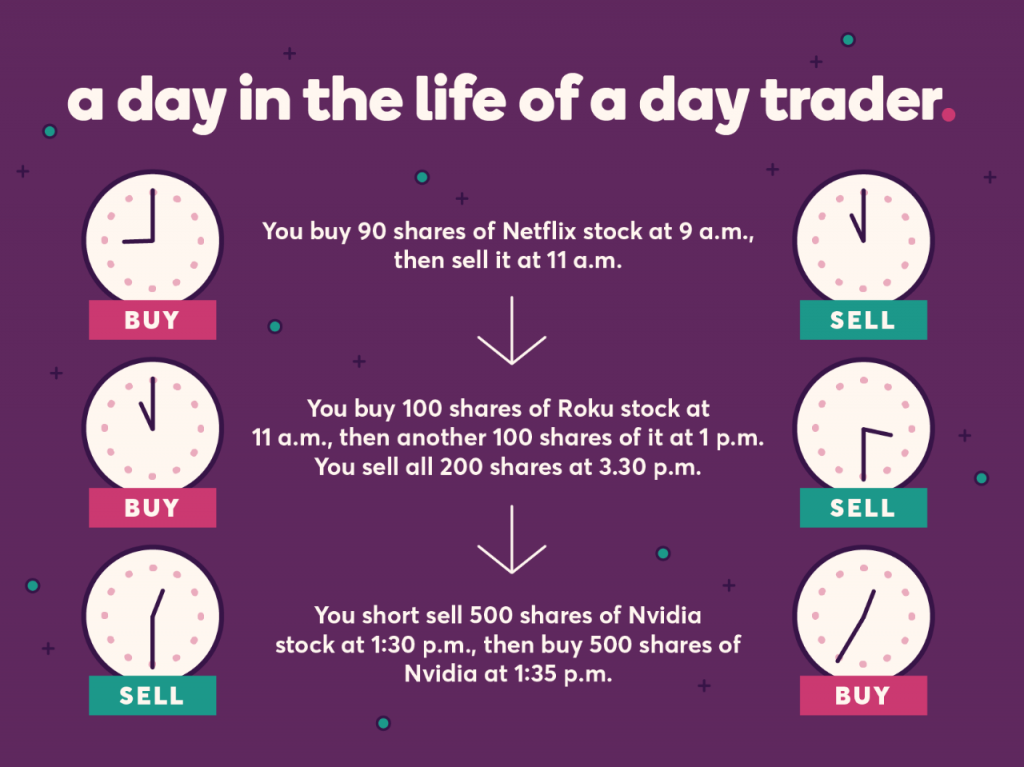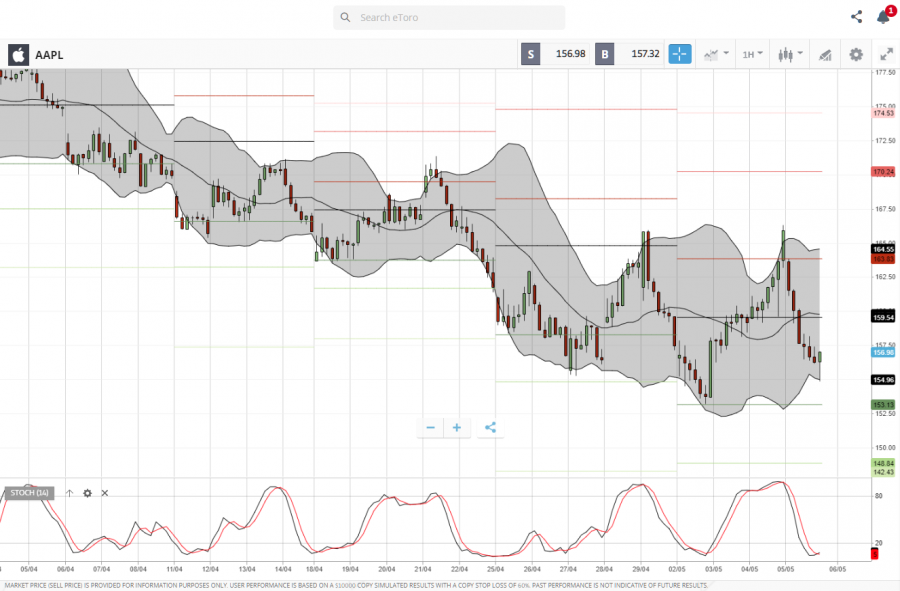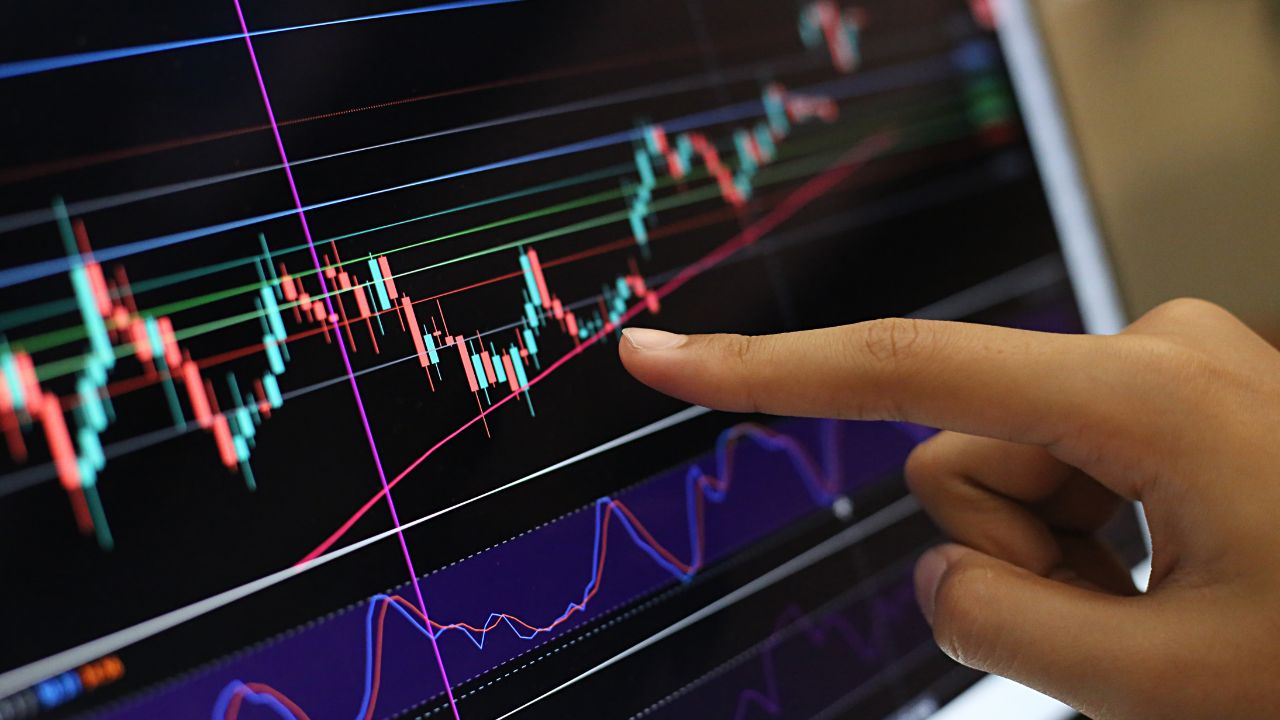Day trading is a popular strategy among investors who want to make short-term profits. It involves buying and selling financial instruments, such as stocks, within a single trading day. Day traders hold no overnight positions, meaning they open and close trades in the same market session.
Day trading aims to capitalize on small fluctuations in the price of an asset during volatile market conditions. Through careful research and analysis, experienced day traders can identify short-term trends in the stock market that could generate significant profits. As with any investment strategy, however, there is also potential for losses when day trading stocks or other securities. Proper risk management techniques are essential for success in this high-risk activity.
Benefits of Day Trading
Potential for High Returns
The potential rewards available through day trading make it an attractive option for investors who understand the risk they are taking on. With the right strategies and understanding of market trends, individuals have the potential to realize significant profits with minimal capital investment. Day traders must also stay up-to-date on market developments to identify opportunities that present themselves throughout each day’s trading session.
Flexibility
By using the latest technological advancements, day traders can work from anywhere and at any time, as long as they have access to a computer and the internet. Day trading offers individuals unparalleled flexibility in terms of both location and schedule. With just a few clicks, day traders can enter or exit positions quickly on markets worldwide, no matter where they are located. Furthermore, with day trading, there are no geographical boundaries, meaning anyone with an internet connection can take advantage of opportunities throughout the different global markets 24 hours a day.
Control over Investments
With day trading, investors can invest in stocks, options, and other assets with the ability to buy and sell quickly to capitalize on short-term price movements. This investor has access to various tools that monitor markets closely and make fast decisions based on market data. Day traders can also take advantage of leverage by using margin accounts which enable them to increase the size of their trades without putting up all the capital upfront. Margin accounts also allow for greater flexibility in how much risk an investor is willing to take on at any given time. By taking control over their investments through day trading, investors can maximize returns while minimizing risk exposure within a shorter timeframe than traditional long-term investing strategies.

Credit: ally.com
Opportunity to Learn about Markets and Investments
Day trading can provide a great learning opportunity for those looking to get involved in the financial markets. It allows individuals to make decisions quickly based on their understanding of economic news, technical analysis, and market sentiment without committing funds for an extended time. During volatile times such as these, when global markets are experiencing significant swings due to geopolitical tensions or currency fluctuations, investors need to stay informed on how different investments are affected by changing conditions.
Drawbacks of Day Trading
High Risk
Day trading is a risky investment strategy involving taking on large amounts of risk to reap significant rewards. It’s not for the faint of heart, as it requires a great deal of skill, knowledge, and dedication to execute correctly. While many believe day trading is the path to quick riches, it can also be dangerous if done incorrectly.
Before beginning a day trading career, potential investors should understand all the risks associated with this investing style. Day traders often use leverage to increase their potential profits or losses from any given trade. This means that even small changes in market conditions can have an outsized effect on their portfolios. As such, sudden and drastic losses are common when day trading. Additionally, taxes and fees may also take away from potential profits or increase losses significantly depending on how trades are structured and reported.
Requires a Significant Time Commitment
Day trading requires significant time and attention from its practitioners. Traders must constantly monitor the markets for opportunities while making quick decisions when they arise. It can be an incredibly stressful endeavor due to its fast pace and potential for losses and gains. To succeed at day trading, traders must have strong discipline and focus on understanding the market’s ups and downs over time. They must also have access to up-to-date news about their chosen investments to react quickly to unfolding events.

Credit: business2community.com
Requires Discipline and Self-Control
Day traders can easily become emotionally attached to certain stocks or assets, leading them down a dangerous path if they don’t limit themselves. Trading is all about risk mitigation, which means limiting your involvement in any stock or asset class to avoid catching up with its short-term fluctuation due to emotional bias. A well-thought-out plan considering your risk tolerance level, is essential for any successful trader.
Requires Constant Monitoring
Day trading requires constant monitoring to stay ahead of the market. Traders must pay attention to news updates, price changes, and other related trends happening throughout the day to make successful trades. The ability of traders to respond quickly and precisely to changing market conditions is imperative for success in day trading. If changes occur without a trader noticing, they could find themselves losing money instead of gaining it. Day traders must constantly monitor their investments and any relevant data or news that may affect their decisions. This includes checking stock prices multiple times daily, setting up alerts for significant price swings, and remaining updated on economic events that may influence stock prices.
Requires a Significant Amount of Capital
Day trading requires a significant amount of capital to be successful. Traders must have enough funds to cover margin requirements for a given position. Without adequate funds, a trader can’t make money from day trading as they cannot take advantage of potential opportunities when they arise. The size of these margin requirements can vary depending on the asset being traded and the broker used by the trader. As such, having access to enough capital is essential for mitigating risk and ensuring that trades are successful. Furthermore, this allows traders to maintain their positions over more prolonged periods while waiting for market changes. Therefore, having sufficient capital is an essential aspect of day trading which must not be overlooked.



